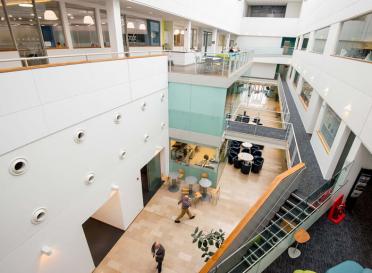
Life at Earlham Institute
We believe that our people are our greatest asset, and we want you to have the freedom to achieve your very best work here.
Western diets rich in fats and sugars are linked to obesity and more frequent infections. In contrast, plant-based diets have been associated with increased longevity and decreased infections in the elderly.
Transitioning to a plant-based diet typically involves decreased protein intake through reduced meat consumption. However, the impact of low-protein diet on human health, particularly immune function, remains poorly understood.
The Wojtowicz Group (EI) in collaboration with the Beraza Group (Quadram Institute) has recently shown that a low protein diet improves the immune response to bacterial infection.
This project will investigate the mechanisms through which Natural Killer (NK) cells enhance the immune response in low protein diets. To achieve this you will employ cutting-edge FACS cell isolation, single-cell RNA sequencing, lineage tracing, metabolomic, and bioinformatic techniques.
We offer a collaborative, multidisciplinary PhD project involving the Wojtowicz, Beraza (QIB), and Haerty groups. This will give you a strong and experienced supervisory team with expertise in metabolomic, single cell and computational methods.
Established collaborations with pharmaceutical companies will allow the student to translate their findings into industry. The project will be conducted at the Earlham Institute and Quadram Institute, renowned research centres for single-cell genomics, bioinformatics, and nutrition.
You will also have access to extensive training and career development opportunities as part of the Norwich Research Park Doctoral Training Partnership.
Further reading:
Application information:

Exploring the mechanisms regulating blood cell production using single-cell approaches.

We believe that our people are our greatest asset, and we want you to have the freedom to achieve your very best work here.

Norwich is a city of culture, with its rich history of art and writing, as well as a city of science - hosting some of the leading centres for life science research in the world.

The behaviours and communication skills we expect from candidates.